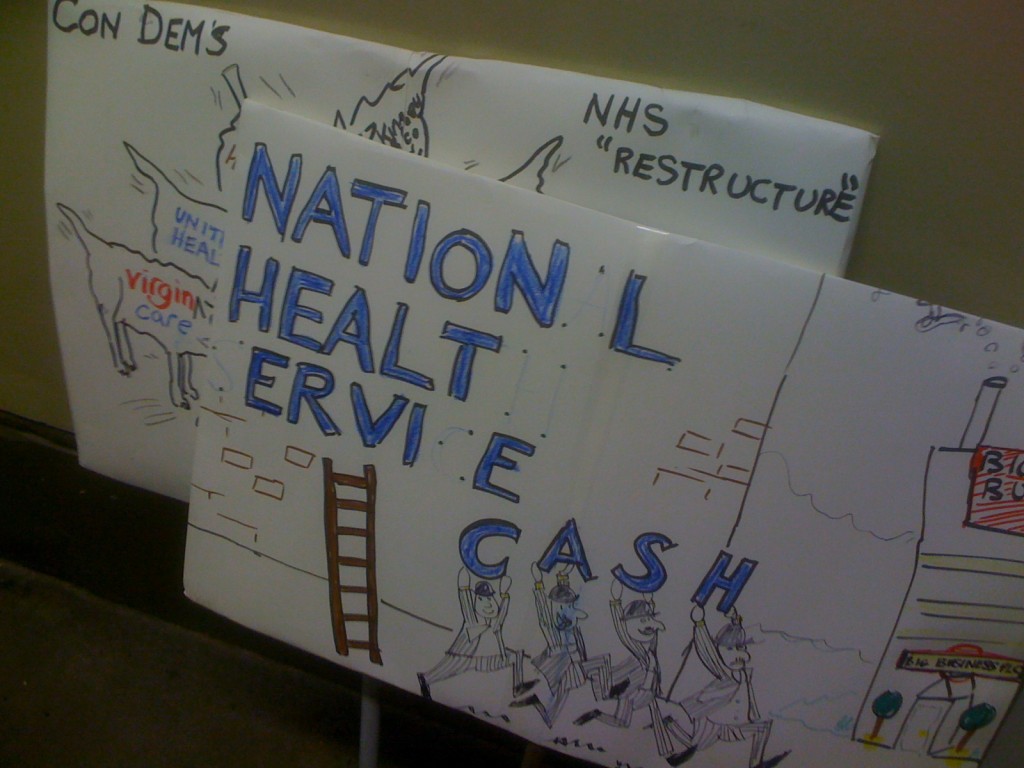NHS: No to Cuts!
The £200,000-a-year chief executive of University Hospitals Leicester, John Adler, is planning to cut maternity services at Leicester General Hospital, so that care for “low-risk pregnancies only” may be delivered at the hospital. He says that a full maternity service is not viable in the future.
Also, intensive care will be reduced from the three hospital sites in Leicester to just two. This is to avoid a projected £400 million ‘funding gap’ by 2019.
These cuts will inevitably cost lives as critically ill patients and women with complications in childbirth may have to travel across the city. A pregnancy can start off normally, but complications can develop. Under these plans that could be fatal.
 The loss of beds will have a further impact on the hospital’s ability to treat patients, especially in the winter. Locally, hospital services are already hugely stretched and the waiting time for A&E treatment is more than four hours.
The loss of beds will have a further impact on the hospital’s ability to treat patients, especially in the winter. Locally, hospital services are already hugely stretched and the waiting time for A&E treatment is more than four hours.
At a recent public meeting on the state of the NHS, organised by Keep Our NHS Public, a nurse spoke of patients having to be sectioned under mental health legislation, not because they needed psychological treatment, but simply to ensure that they would get a bed!
The health Trust gives excuses for the cuts, talking about a move towards “care at home”. When it was set up in 1948, the NHS was intended to provide a “comprehensive” healthcare service. This responsibility was torn up under the Tories’ infamous 2013 Health and Care Act. But would Labour do anything any different?
Labour introduced Foundation Trusts, making hospitals compete with each other for funding and opening up the NHS to the private market, rather than cooperating to deliver the best possible care. Labour also expanded the use of Private Finance Initiative (PFI) – sarcastically dubbed ‘Profit From Illness’ – privatisation schemes. Such schemes have allowed private companies to take over the running of NHS facilities and services. PFI has generated enormous profits for companies such as Capita, Serco and Interserve, while leading to a ‘debt’ crisis in our hospitals.
The NHS is again experiencing a major underfunding crisis, despite promises made by the government in 2010 that frontline staff would not be affected by cuts. The government also promised that there would be no major top-down reorganisation of our hospitals – just before it pushed through a major privatisation of services, with billions of pounds of NHS funding going to the private sector.
That money could instead be invested to meet the needs of the people of Leicester and everywhere else. But this can only happen if the rapacious ‘vulture companies’ are kicked out of our public services for good.
The Socialist Party calls for the building of a mass workers’ movement, including a political wing, to scrap PFI, kick out the profiteers, and rid the NHS of costly middle-men and reduce bureaucracy.
The Socialist Party further demands complete renationalisation of NHS services and democratic control, including by workers and patients in the NHS.
Socialist argue that if capitalism is not willing to pay for decent healthcare, then it’s not the NHS we cannot afford but this rotten economic system itself, which puts profits before people.


